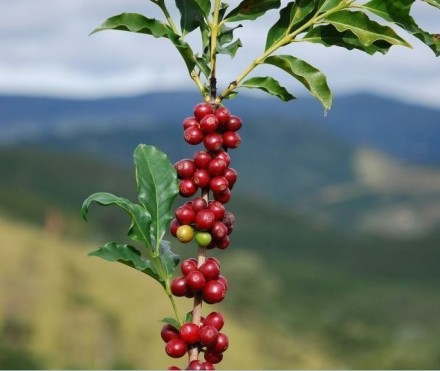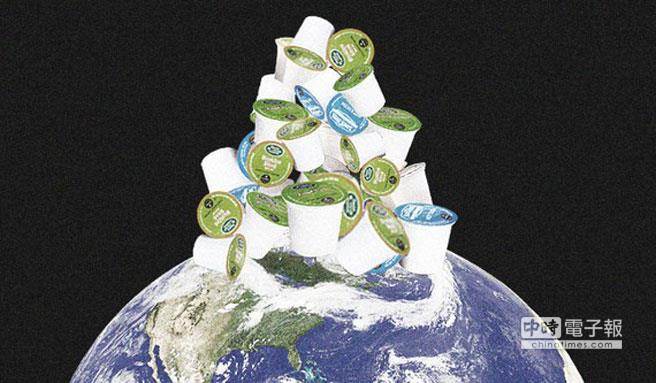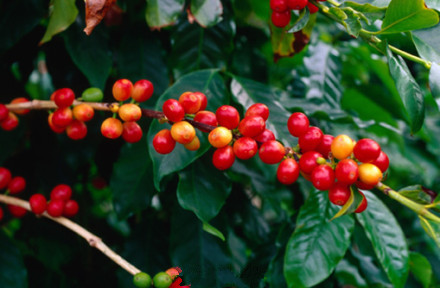China's coffee to be exported will become a major global coffee production base.
As one of the coffee producing places, China's future development goal is to be on a par with Latin America, the global coffee production base, and to become the world's leading coffee producing country. However, this road of development is still long, and China has a long way to go to achieve this goal.

The green plateau and endless tea gardens are the deepest impression of foreigners on China. It is well known that China is the largest tea producer in the world. When it comes to traditional Chinese drinks, the first thing you think of is tea. But now China wants to change that, and she now wants to emphasize to the world that China is also rich in another drink: coffee, which is home to many coffee growing bases. Beijing has made it clear that it wants to become the world's leading coffee maker and the world's largest coffee seller.
Coffee trees in China mainly grow in Yunnan Province, which happens to be one of the best tea plantations in China. Coffee, which originated in Yemen, was brought to southwest China by French missionaries in the late 19th century and promoted. However, due to the lack of sales market, coffee cultivation in China is still on a small scale. Until the end of 1980, the government decided to provide a development space for coffee cultivation. In 1998, China produced 6.24 million kilograms of coffee, but this year, it produced 90 million kilograms, almost the same as that of Costa Rica.
The continuous rise in coffee sales in China in recent years has successfully convinced many farmers that coffee is the crop with the least restrictions and the highest economic benefits. Moreover, the Chinese are gradually infatuated with the taste of coffee, but, judging from the current situation, the impact of Chinese consumers' preferences on the expansion of coffee is almost negligible. According to statistics released by the International Coffee Organization (ICO), in 1998, China's local coffee sales were about 199000 bags, each bag of coffee weighed about 60 kg, but by 2012, China's coffee sales increased to 1.1 million bags. China's annual coffee sales are growing at a rate of about 12.8% between now and 2020, and will reach 2.8 million bags (60 kg each) by 2020. Another source of impetus for the development of coffee cultivation in China is the growing global demand. Between 2014 and 2015, the gap between global coffee supply and demand was about 8.9 million bags, each weighing 60 kilograms.
Production and consumption of coffee in China
China thinks it has enough strength to compete with the world's two biggest coffee producers: Brazil and Colombia, which produce 5.12 million bags and 1.25 million bags (60kg each), respectively. These two countries account for more than 50% of global coffee production. Vietnam in Asia also plays an important role in world coffee production thanks to the cultivation of robusta, a lower-quality coffee bean used to produce instant coffee, which produces about 2.93 million bags of coffee.
A head of Volcaf, a Swiss coffee maker active in the Chinese market, said: "to achieve this goal, China will double its global coffee production in the next five years." Volcaf will also enter into a partnership with Yunnan Simao Arabica Star Coffee Company (SACCO), a local coffee manufacturer, to establish a joint venture for coffee production in Yunnan to improve the quality of Yunnan coffee and make it more suitable for commercial production. There are also multinational coffee companies in Beijing, such as Nestl é, which has been in China's coffee industry for more than 20 years.
It takes a long time for Yunnan to occupy a place as a new producing area.
Many experts believe that China's arabica coffee still has a long way to go if it wants to reach the level of Latin America and occupy a place in the world coffee production. Volcaf said: "Chinese Arabica coffee, as a relatively new variety of the world coffee family, its quality improvement will also make it accepted by more and more manufacturers." Arabica coffee beans are famous for their light shape and fragrant fruit aroma. Arabica beans from China's Yunnan province have become the main blend of European Arabica coffee, mainly used to make cappuccinos and espresso, according to international coffee traders and roasters. However, as a new coffee producing area, Yunnan needs a long time to occupy a place in the world coffee producing area. Our goal is to make global coffee manufacturers aware of the efforts of the Chinese government and farmers, so as to make China a global supplier of coffee production.
In Yunnan Province, local coffee growers have set their sights on Kopi Luwak, the world's most expensive coffee breed, which sells for about $500,000 to $750kg. (compiled by Wu Pingxi for internship)
Important Notice :
前街咖啡 FrontStreet Coffee has moved to new addredd:
FrontStreet Coffee Address: 315,Donghua East Road,GuangZhou
Tel:020 38364473
- Prev

Capsule coffee seriously destroys the environment and inventors regret and do not drink capsule coffee
Last year, the Dashan Coffee Company sold more than 9 billion bags of coffee and created mountains of plastic waste. (taken from the Internet) in the United States, 1/3 of households have a pocket coffee machine, and Aoshan Coffee launches new products every year. K-Cup, which is very popular in the United States and has caused a wave in Taiwan in recent years, is a new breed of coffee for many coffee people.
- Next

Nestle Coffee Center lays foundation in Pu 'er, Yunnan, China
(Yunnan, March 9, 2015) The large-scale project of Nescafe Center in Pu 'er Industrial Park officially broke ground today, which will greatly enhance the ability to provide training and technical support for coffee farmers and coffee practitioners, and further improve and promote the development of Pu' er coffee industry. The centre is expected to be operational during the 2015-2016 coffee procurement season. The Nescafe Centre consists of two sections
Related
- The ceremony is full! Starbucks starts to cut the ribbon at a complimentary coffee station?!
- A whole Michelin meal?! Lucky launches the new "Small Butter Apple Crispy Latte"
- Three tips for adjusting espresso on rainy days! Quickly find the right water temperature, powder, and grinding ratio for espresso!
- How much hot water does it take to brew hanging ear coffee? How does it taste best? Can hot water from the water dispenser be used to make ear drip coffee?
- What grade does Jamaica Blue Mountain No. 1 coffee belong to and how to drink it better? What is the highest grade of Blue Mountain coffee for coffee aristocrats?
- What are the flavor characteristics of the world-famous coffee Blue Mountain No. 1 Golden Mantelin? What are the characteristics of deep-roasted bitter coffee?
- Can I make coffee a second time in an Italian hand-brewed mocha pot? Why can't coffee be brewed several times like tea leaves?
- Hand-brewed coffee flows with a knife and a tornado. How to brew it? What is the proportion of grinding water and water temperature divided into?
- What is the difference between Indonesian Sumatra Mantinin coffee and gold Mantinin? How to distinguish between real and fake golden Mantelin coffee?
- What does bypass mean in coffee? Why can hand-brewed coffee and water make it better?

